
All children have a different types of personalities and natures. A lot of naturally activated recognition, needs, qualities, and implications that are rooted deep in a baby since childbirth, recognizable at an early age, and generally constant after some time. Every child is different and has different likes and dislikes. It is up to the parent to recognize and understand their child’s true nature and raise them accordingly. For instance, some children are born extroverts. They love to play and dance and be in the spotlight all the time. On the contrary, some children are pure introverts, these children are perceived as shy and less talkative and more imaginative. It is very well up to the parent to understand their child’s true nature and adhere to it.
Children are free-spirited and full of light. However, sometimes it is tricky for parents to fully understand the true nature of their child. As per conventional parenting methods, a lot of people don’t really understand their child’s true nature and don’t realize that each child is different from the other and so they implement the same parenting methods on all their children which often results as bad parenting and a troubled relationship with their child. Parenting is a very critical job that comes with a lot of obligations and responsibilities but many parents do not know how to do the right parenting. The initial step is to figure out your little child’s character. Realizing your kid’s demeanor encourages you to realize when to spoil and when to push.
ADAPT YOUR PARENTING STYLE ACCORDING TO YOUR KID’S PERSONALITY
If you have multiple kids, you’ve likely been astounded by how unique your kids are from each other. One may be peaceful and agreeable, while the other is profoundly social and energetic. One accepts change, while another might require additional opportunity to alter. These kids were raised with similar parents, in a similar home condition, and in a similar culture, yet they approach life in an unexpected way. What gives? Your child’s temperament matters a lot.
What is Temperament and Where Does it Come From?
Temperament alludes to both our character attributes and reactions to life. Analysts and scientists for the most part take a gander at five attributes while thinking about demeanor. These attributes include:
- Enthusiastic power
- Movement level
- Dissatisfaction resistance
- Response to new individuals
- Response to change
Every individual is brought into the world with their own one of a kind character qualities and demeanor. Demeanor isn’t brought about by something you did or didn’t do, nor is it a result of culture, albeit a kid’s situation can assume a job by the way he sees himself and by the way he adjusts to life. A comprehension of personality can assist guardians with fitting their way to deal with their kid’s needs.
Distinguish your kid’s demeanor. Consider your youngster’s run of the mill conduct. Does she appreciate meeting new people and encountering new things or does she need a brief period to heat up in social circumstances? Maybe she falls some place in the center. Does your kid appear to feel things profoundly, going from serious bliss to furious indignation, or would he say he is commonly peaceful? Consider where your kid most much of the time falls on this diagram clarifying different demeanor types.
Assemble understanding. Your kid hesitates as the day progressed, waiting over each action, while you appreciate scratching things off your plan for the day. You and your accomplice love meeting new individuals, yet your youngster would like to remain at home. As often as possible, there is a jumble between a youngster’s demeanor and a parent’s personality. This crisscross can prompt clash. Understanding your own demeanor and that of your kid permits you to step back, increase point of view, and stay quiet. Rather than getting baffled, you can search for arrangements and bargains. For instance, you can help a withdrawn kid by offering a lot of guidance ahead of time before another circumstance, giving insights regarding what’s in store and how to react, and taking an interest in little gathering exercises rather than greater get-togethers whenever the situation allows. A few parents in this circumstance locate that trade-off functions admirably, e.g., “I realize you don’t adore parties. We should go for 45 minutes and afterward we’ll get back home.”
Keep your necessities discrete. Another regular parenting test is that of isolating parental needs and inconsistent style from that of our kids. A parent may accept that a youngster “needs” heaps of social action, for instance, when truth be told, the parent wants it. Maintaining a clear parenting style and having transparency with your children helps you maintain a good relationship with your kids.
Be your child’s advocate. Our way of life is usually in favor of calm, compliant, and obedient conduct. On the off chance that you have a child with high vitality and exceptional feeling, you’ve most likely experienced judgment from good-natured family members or companions. Understanding that demeanor qualities are special and inalienable can help ease the heat off, permitting you to consider your to be’s attributes as potential qualities. This places you in a superior spot to react to negative remarks in manners that are useful to your kid, e.g., “Truly, she is lively and free. She knows precisely what she needs. She’s dealing with figuring out how to settle.”
The hypotheses around disposition are only one instrument in the parenting tool stash. Thinking about character qualities can assist you with increasing more prominent comprehension of your kid’s needs and how best to help her development. It’s critical to recollect, however, that disposition is only one part of a youngster’s turn of events and experience. Practices can be affected by condition, disease, social desires, and formative handicaps.
Temperament isn’t generally a fixed trademark. Kids with thoughtful character characteristics can figure out how to turn out to be progressively social. A youngster with a “fast temper” can learn self-guideline. Utilize your insight into disposition as an instrument, however abstain from putting marks on your youngster (e.g., bashful, hot-headed, difficult) that may constrain her development.
THE DIFFERENT TYPES OF CHILDREN
We’ve all wondered about how significantly extraordinary every single one of our children is; the means by which they come to us with their own remarkably built characters.
In spite of the fact that kids can display every one of the four kinds of character qualities, one is generally progressively prevailing.
Type 1: The Fun-Loving Child
The carefree child is bubbly, flamboyant, and social. They are loaded with thoughts and are fun-loving and enlivened. In some cases their vitality can be viewed as a deficiency when they would prefer not to sit still or when they intrude on you to share their thoughts. In any case, guardians who perceive their spirit as a blessing and not a defect can assist them with forming into innovative, glad grown-ups.
A few hints that you may have a fun-loving child:
- They are keen and love to explore and discover.
- They love to make commotion, snicker, and play.
- Inventive/innovative
- Anxious to satisfy others–enjoys when others are glad and particularly needs you to be cheerful.
- May have numerous companions or change companions frequently.
The most ideal approach to interface with a carefree youngster:
- Applause their smart thoughts and urge them to impart those plans to other people.
- Figure out how to be alright when they start a certain something and afterward alter their perspectives. They are investigating what works for them.
- Play around with them! Get down on their level, hurl a ball around with them, or participate in their imaginative play.
- Be thankful for the positive vitality they bring to the family.
- Give them the opportunity to investigate and try out their innovativeness and thoughts.
Type 2: The Sensitive Child
The touchy kid has a normally quiet and nice character. They are regularly called the “peacemaker” of the family since they don’t care for strife. The sort 2 youngster is delicate with feelings near the surface. They are commonly calmer and are frequently approached to “talk stronger” or “pick up the pace.” They get things done individually.
A parent may get disappointed when they ask their sort 2 kid to tidy up his room and return 15 minutes after the fact to think that it’s still not done. At the point when you perceive your youngster’s intrinsic “delicate” character, it encourages you to comprehend why they do the things they do.
- The sensitive child’s mantra is: I will watch, watch, and afterward make an arrangement.
- A few pieces of information you may have an emotionally fragile child:
- They have a calm and composed temperament.
- They like to design and that arranging can now and then take quite a while.
- The sensitive kids are worriers; they like to realize what’s in store in each circumstance so they can get ready for it.
- Conflict in the house enormously disturbs them.
The most ideal approach to interface with a sensitive kid:
- Cause them to feel safe. Tell them you are there for them in some random circumstance.
- Fill them in on the subtleties. In case you’re going into a new circumstance, set them up in advance with what’s in store.
- Give a quiet spot to them. Clearly, your home can’t be tranquil constantly, yet have a room your touchy kid can go in when things get insane.
- Try not to push them to be all the more cordial. They will attempt things at their own pace.
Type 3: The Dominant Child
You know when you have a dominant and determined child on your hands in light of the fact that the sort 3 kid is the most observable. The dominant kid is normally progressively physical, dynamic, and… obstinate. The person was brought into the world with a drive to complete things, for the most part in their own particular manner. Type 3s are normally advised to “quiet down” or “quit being so requesting.”
A few pieces of information you may have a dominant child:
- They have a solid will.
- They will seek after a few major objectives without a moment’s delay.
- Decided sorts are normally dynamic and courageous—they are all set, do, and investigate!
- Need to attempt authority positions in school, home, or work.
- Self-roused as opposed to propelled by others.
- Can be uproarious, intense, or directly to the point (likewise observed as obtusely fair.)
The most ideal approach to associate with a dominant child:
- Do whatever it takes not to let your difficult character butt heads with their obstinate character.
- Rather than battling to reign them in, have a go at giving a decided kid more opportunity to find for herself.
- Cheer them on in their objectives!
- Empower their certainty and enthusiasm.
- Rather than addressing, “Do you imagine that is a smart thought?” take a stab at offering: “I’m energized for you and I’m here to help! However, have you at any point contemplated… “
Type 4: The Serious Child
An all the more truly slanted kid is intelligent, autonomous, and centered. Individuals regularly wonder about how “develop they are for their age.” They are the expert on numerous issues and relish in flawlessness.
A serious kid’s mantra is: Let’s see what this is, how about we dissect it, and I realize an approach to improve it.
A few pieces of information you may have a serious kid:
- They are not as light and perky as other kids.
- They can be entirely unbending and rigid with regards to getting things done.
- The individual in question is an intrinsic stickler.
- Their thoughts for approaches to improve something frequently seem to be analysis.
- They like to orchestrate things (toy vehicles, pastels, and so forth.) in a particular column.
The most ideal approach to interface with a serious kid:
- Have a go at identifying with them intellectually before inwardly. Comprehend what they are thinking as opposed to feeling.
- Genuine youngsters hunger for grown-up regard; let them realize you regard their musings and assessments.
- When conversing, talk in legitimate terms that they will comprehend. A few children react to: “It would make me so cheerful on the off chance that you tidied up your room..” yet a genuine child will react better to: “I need you to tidy up your room since it represents a threat of me stumbling or winding a lower leg.
- Request their assessments and arrangements frequently.
When a parent observes, learns and understands the true personality of their kid, it becomes easier for them to raise them as smart, happy and successful individuals.



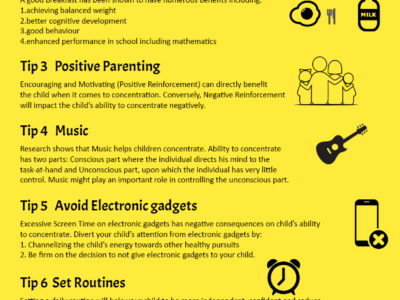




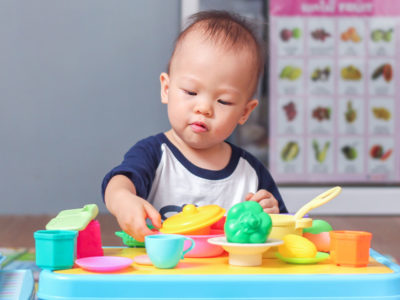

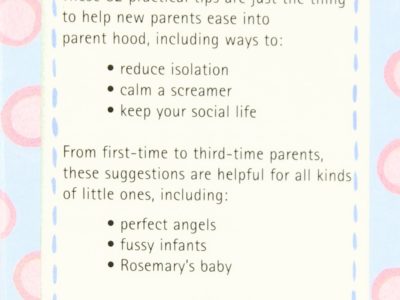
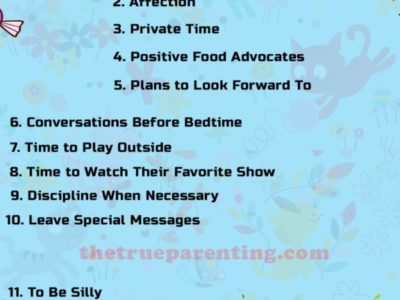

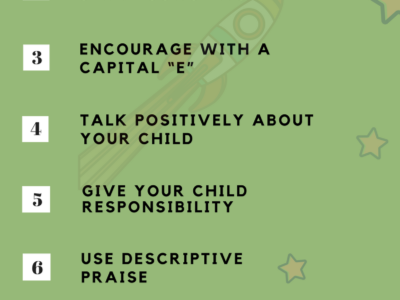
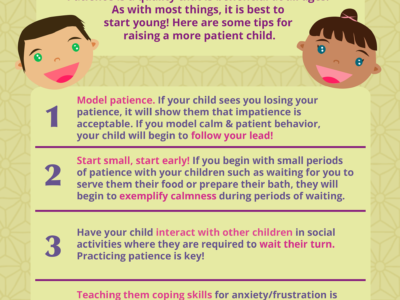









 How to Prepare Your Older Children for a New Baby
How to Prepare Your Older Children for a New Baby 




